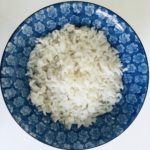There is controversy about whether or not a gluten-free and casein-free diet can “cure” autism. My personal opinion is that anyone who has a child diagnosed with Autism Spectrum Disorder should try the diet. I am not saying it will be easy — but what if your child’s condition could be improved, or yes, even “cured” by changing what he eats? As someone who experienced radical changes in my health, both physical and mental, by eliminating gluten, I can’t help but believe that many autistic children would also benefit from dietary intervention.
If you want to know about how autism could really be undiagnosed celiac disease, click on the link to an article in the Journal of Child Neurology. The article, “Celiac disease presenting as autism,” discusses the case of a 5 year-old severely autistic boy who actually had underlying celiac disease. It was the nutritional deficiencies caused by celiac disease that led to his neurological problems. The authors of the article explain how nutritional deficiencies can cause certain behaviors.
In one paragraph, they state: “The brain is a biological organ that requires complex interaction of numerous biochemical nutrients to carry out physiological processes. Emerging evidence confirms that deficiency of assorted nutrients such as folate, vitamin D, or essential fatty acids may impair various biological processes required for normal metabolic and neurological functioning. Just like digestion and respiration, moods and thoughts have biochemical substrates; deficiency of nutrients required to carry out biological functions in the brain may result in neuropsychiatric syndromes like autism, characterized by disordered moods, thoughts, and behaviors.”
It makes sense!
This particular article references only one boy, but you can find many personal stories about the successes of the gfcf diet in treating autism in the Success Stories on gfcfdiet.com.
Another important thing to remember is that many people who test negative on the blood tests for celiac disease may still have a gluten sensitivity. I don’t believe that anyone should rule out a gluten-free diet just because of a negative blood test. That goes for everyone with symptoms or health issues, not just autistic children.
Related reading:
Autism and diet – what’s the connection?
Is the Media Fueling the Gluten Free, Casein Free Autism Controversy?
Gluten-Free Guide
Casein-Free Guide







Brenda says
Thanks for this… you wouldn’t believe it, I was saying something just along these lines to my husband earlier tonight. How if our daughter didn’t have “autism” it must be SOMETHING caused by diet and how her body reacts to it because of how different her behavior was after starting a GFCF diet and, now that we allow her some milk, how she can still have (very obvious) “episodes” after exposure to too much milk protein and/or accidental gluten.
BevF says
Are you serious???? Yes, autistic children can, and often do, suffer from leaky gut syndrome and a gluten free and also dairy and sugar free diet can help. To lump autism under celiac disease is just whacked. Totally whacked. If only it were that simple. I wish.
alison says
BevF,
Thanks for your comment — this is a sensitive subject, but I don’t think I or the researchers were lumping at all. A case of one boy is presented as a true example of how this could happen. If I were a parent of an autistic child, I would try the diet and hope that my child was one who would improve.
So many people, including doctors, don’t even know about celiac disease so they would never think to look at the gluten connection. Also, there are many parents of autistic children who don’t know about the gfcf diet as a possible treatment. I am hoping to present a possibility for some of the children out there.
At a recent talk that I attended, a well-known doctor specializing in gluten intolerance stated that he believed that 1 in 5 people are gluten intolerant — that’s a large percentage of the population! Gluten intolerance can manifest in so many ways, not just in the gut. The connection to the brain has been documented in medical studies, yet this information is not well-known to the general public. Consequently, people are anxious, depressed, and suffering from mental disorders without knowing the cause.
My goal is to increase awareness and if just one person finds this article and has success for his/her child with the diet, then I have achieved my goal!
I would love to hear more of your personal experiences with autism and diet.
~ Alison
Deanna says
I have a child with autism. She has leaky gut and is on a gfcf diet. I very much consider this a co-existing condition to her autism. Obviously autism looks very differently in different cases, but in our case, the diet helps her digest food better and therefore sleep better and get sick less often. That will of course translate to better ‘behavior’. But her core autistic tendencies have shown themselves from very early on in her life and haven’t changed much with a change in diet. She is doing very well due to much prayer and the RDI program we have worked hard at for years. It is good to educate people about this diet, but dangerous to link celiac that simply to it. I know people with celiac who are clearly not autistic. I am frustrated every time someone says they have or can “cure” autism. It isn’t that simple & it’s almost insulting to parents/family of someone with autism who are doing everything they can.
alison says
In response to both BevF and Deanna, I have changed the title of this post from “Could autism really be celiac disease?” to “Could some cases of autism really be celiac disease?” I did not mean to imply that I believed that all cases of autism are really celiac. Obviously they are not. My hope in to raise awareness of celiac as a possibility in some cases. Thank you for your comments.
~ Alison
Cathy says
I have been teaching ( both special and regular ed.) for over 25 years and was diagnosed with Celiac Disease a little over a year ago. Since my diagnosis, I have done extensive reading on the disease and, unfortunately, probably know more about it than alot of doctors. I am convinced there is a connection between autism and gluten or some other substance/toxin not tolerated by the body. Why has there been such a dramatic increase in the incidence of autism? One thing I do know, if I had a child with autism I would at least try the gfcf diet – what have you got to lose?